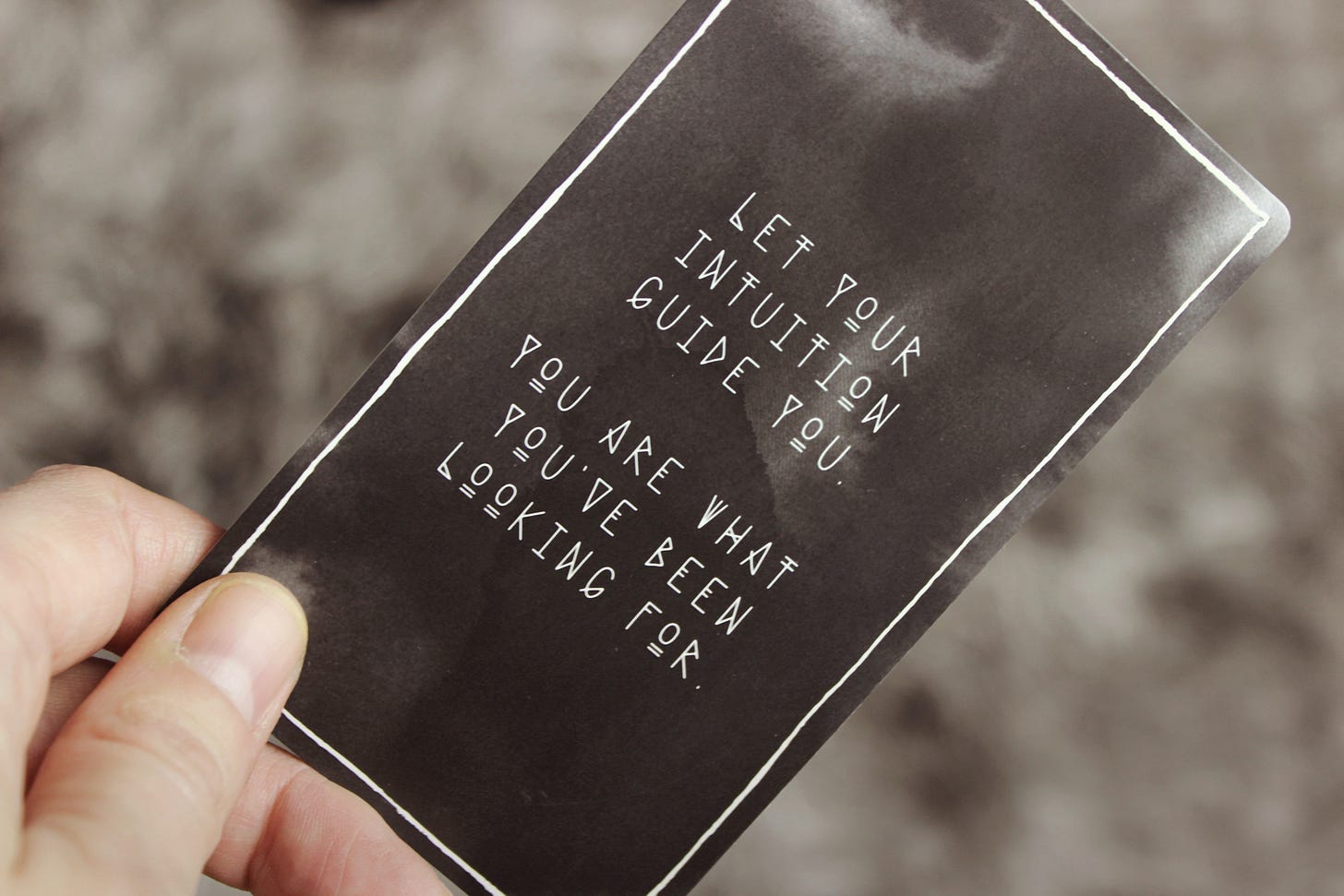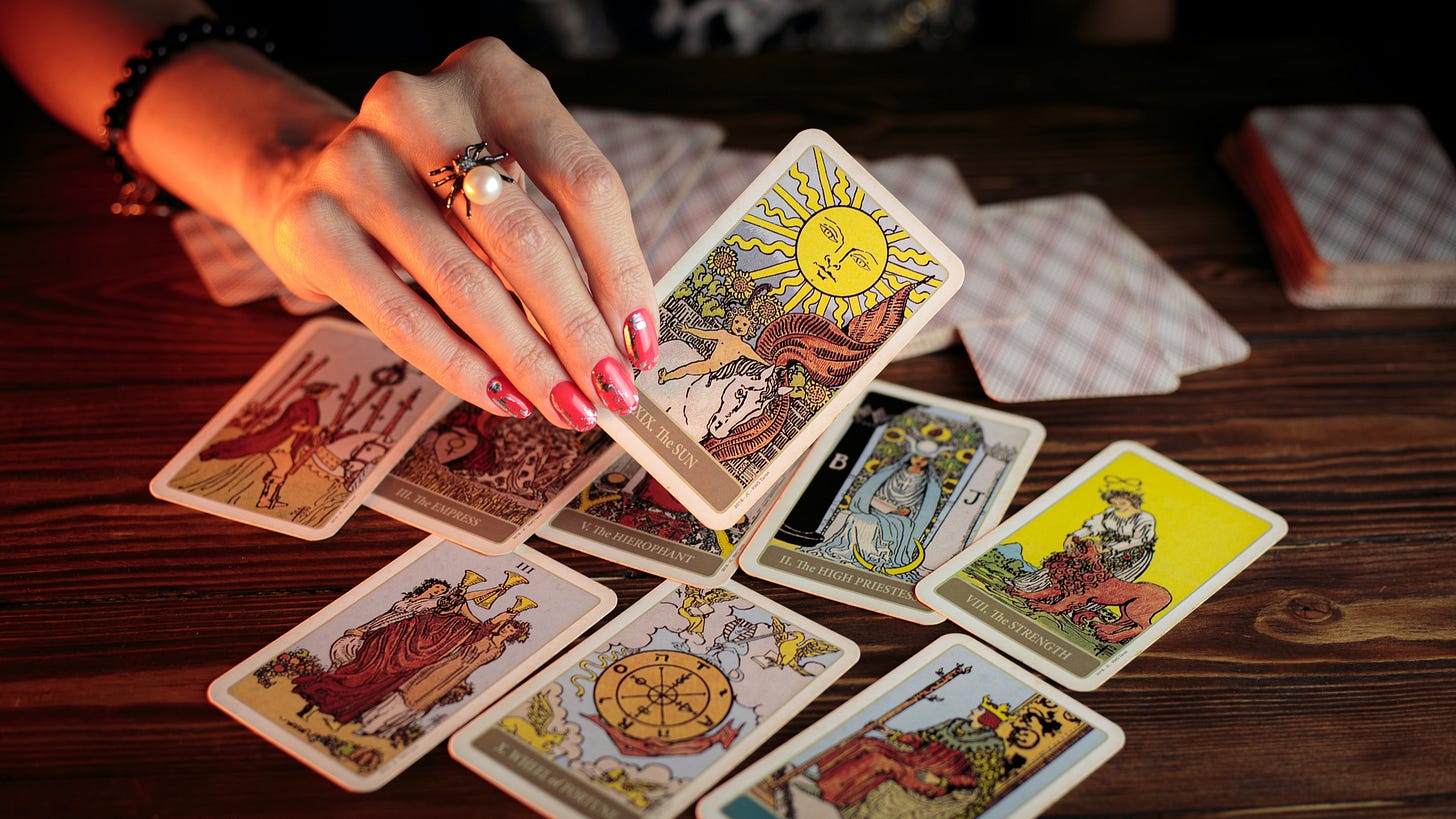Dear Hermit,
Have you ever experienced a gut feeling or a sixth sense that something may happen or go wrong? Has there ever been a time when you swear that you know about certain things and events that will happen, although you cannot describe how you come to know it or provide any form of reasoning or proof? While you might call this as your ‘gut feeling,’ this sense – known as intuition – does not necessarily arise from your stomach. Today, we'll uncover the elusive idea and meaning behind this gut feeling or otherwise known as Intuition.

What is Intuition?
Also known as a hunch or a gut feeling, it is defined as convincing, hasty feelings whose origins cannot be explained by the individual himself. Intuition comes from the Latin word “intuir,” which means knowledge from within. While you might think of it as being brought about by an internal force, your gut feeling actually starts with a perception of an external factor, say intonation or facial expression so brief that you are actually unaware that you have noticed it.
To me, the word intuition has both beautiful and substantial meanings. The word intuition is composed of two parts: "In" which points our attention and awareness inwards towards ourselves, and "Tuition" which means teaching or instruction. Intuition is therefore a form of inner guidance, a voice of wisdom that arises from within us which is ourselves. Intuition shows you that wisdom can never come through the borrowed knowledge of others, but through your own deep understanding. Our Intuition is the bridge to our higher potential, our higher selves, but nobody taught us how to listen to it. Although we can identify it as a “gut feeling”, “sixth sense” or “instinct”, many of us haven’t learned how to trust it or how to use it.
How does intuition work?
Psychologists believe that intuition relies on powers of pattern-matching, as the mind combs experience stored in long-term memory for similar situations and presents in-the-moment judgments based on them. The automatic information processing that underlies intuition can be seen in the everyday phenomenon known as "highway hypnosis,” which occurs when a driver travels for miles without a conscious thought about the activity of driving the car.
Many scientists propose a dual-process theory – decision-making processes split between intuitive (experiential or tacit) and analytical (rational or deliberate).
In Blink: The Power of Thinking Without Thinking, Malcolm Gladwell (2005) describes the two different approaches as blinking, when intuition is used, and thinking, when an analysis is performed.
"There can be as much value in the blink of an eye as in months of rational analysis." - Malcolm Gladwell
Intuition (or blinking) typically refers to the use of knowledge that is not explicit and in popular culture might be described as a “hunch” or “women’s intuition.” When it happens, it’s hard to quantify or define, but it is there.
Myths about Intuition

Myth #1: Intuition is a gift
Intuition is not a gift; it is the very essence of our being and needs to be recognized, nurtured, and developed. Some may be more intuitively gifted but everyone has the ability to foster and develop it to a useful level.
Myth #2: Intuitive answers are absolutes.
Intuitive hits are possibilities that are present in the here and now. The here and now changes every second and one intuitive hit may chain and lead to another if you let it.
Myth #3: Intuition will help you predict the future.
Intuition helps you become present; it has little to do with the future. When you are fully present the future is not the issue! You are willing to take the steps right in front of you when you are present, with great faith in your heart.
Myth #4: Intuition only comes to those who are spiritual.
Everyone is intuitively guided—it is the way of the universe. All of creation is part of a dynamic grander design. Intuition is understood most consistently when we come from a place of wholeness. In the quiet space of meditation, it is easier to connect to your intuitive nature, but in reality, the guiding forces of the universe are continually steering us towards our greatest potential, if we only knew how to tune in. Intuitive messages also break through the random noise of our mind when we are in crisis such as life-threatening situations or when we are called upon to help others. It may be at these times we are thrust beyond our everyday mind into a space that allows us to intuitively know that we are guided.
How can we tap into our intuition?
Relax with the flow
Getting in touch with the heart is easy when you do it in an active way. The world’s painters, poets, musicians, dancers, and actors all know the secret of allowing Intuition to flow through them.
Find an activity that allows you to be immersed and consumed in a state of flow that could bring your thoughts to a halt. It could be in the form of doing something creative such as playing the guitar, drawing, painting, dancing, etc. As intuition is the subtle voice that whispers to us, the idea is to be in the present moment while silencing the voices in our heads. An analogy would be like looking for the subtle ripples on a placid lake. It’s in these moments that when the mind is quiet, a space is opened for the subtle voice of your Intuition to emerge. Connecting with your Intuition doesn’t always have to be an artistic activity either; simple things like meditation, or even doing the most mundane boring task like cleaning the house, take away the tunnel vision tension of our minds, allowing our peripheral Intuitions to manifest themselves.
As intuition just suddenly appears, it isn’t a process of intellectual step-by-step deduction but what we call “epiphanies” that randomly appear out of nowhere. Or some would jokingly refer to ideas that randomly dropped from the sky.
Start imagining
Did you know that Leonardo Da Vinci used to have his students wonder 100 things out loud every day? This wasn’t just for sh*ts and giggles, but an exercise to try to get them to think differently about the world around them, like a child. Shifting your brain out of thinking mode and into wondering mode will help you be more open, curious, and intuitive. It makes you available for something new.
Meditation
Meditation is such a powerful tool, and according to the American Psychological Association, it improves both your mental and physical health. When it comes to helping build your intuition, it teaches you to be more connected to your mind, body, and spirit. You don’t need to meditate for long periods of time either in order to see the result. Just give yourself 10-15 minutes per day.
Final Thoughts
As the intellect is concerned with the destination of where the mind wants to go, even before you make a decision. This is why many people go on to repeat the same mistakes over and over again because they’re listening to their minds which repeats our past assumptions, or sets of our future expectations. Your Intuition, however, is more concerned with the direction of where the mind wants to go, with a deep understanding of the present moment, the here and now, the environmental circumstances, as well as your authenticity, and based on that, it makes a wise decision.
“Intuition is a very powerful thing, more powerful than intellect.” - Steve Jobs
Do share with us your story about the gut-feeling encounters you had and the amazing places and decisions where it leads you. Do comment below about the ways you would connect with your intuition too.
Love you all & Stay high vibe.
The Woke Hermit is a free weekly newsletter. If you enjoy it, consider the membership option. For $5/mo you’ll get an additional email every week with in-depth insights and content from me. You’ll have exclusive access to our Discord server with the other members and me. You'll get to network with other like-minded people and contribute to the growing community.
You can also show your support by Buying me a coffee to show some love or share to recommend this newsletter to your friends who may benefit from reading this.
For business enquiries, contact me at hello.wokehermit@pm.me



